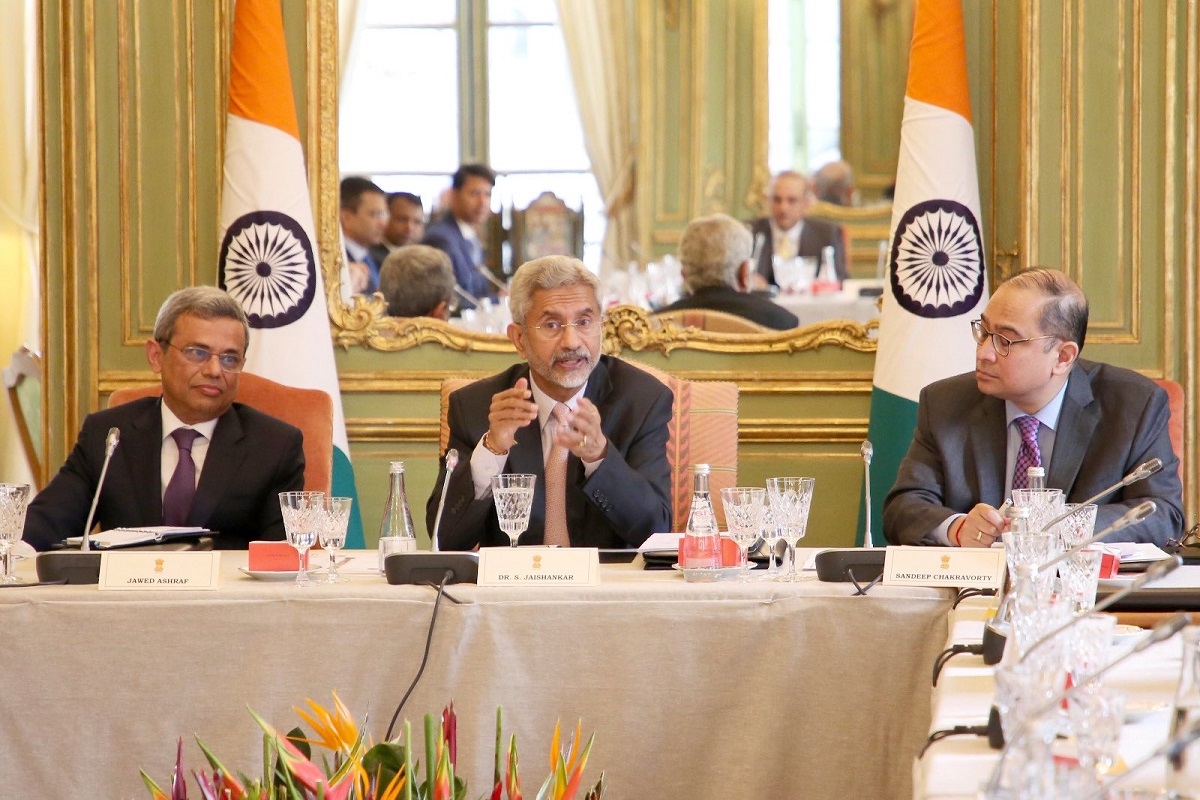The Russia-Ukraine war has added to international disquiet and it has also underscored that the maintenance of international peace and security can no longer be taken for granted, Indian External Minister S. Jaishankar said in Sri Lanka on Tuesday.
Speaking during the Bay of Bengal Initiative for Multi-Sectoral Technical and Economic Cooperation (BIMSTEC) ministerial meet, Jaishankar said, “The international system is going through a very challenging phase, perhaps one of the most difficult in recent memory. The challenges of Covid-19 pandemic have not yet fully abated. But recent developments in Ukraine have added to international disquiet. We have all underscored that the maintenance of international peace and security, and even stability can no longer be taken for granted.”
Advertisement
Jaishankar is visiting Sri Lanka from March 28 to March 30.
He said that the BIMSTEC member countries must recognise that we face headwinds – both from the global economy and in some cases from within their own domestic economies.
BIMSTEC is a regional organisation that was established on June 6, 1997 with the signing of the Bangkok Declaration. The member countries of BIMSTEC are Bangladesh, Bhutan, India, Myanmar, Nepal, Sri Lanka and Thailand.
Jaishankar further stated that under challenging circumstances, the member countries should shore up domestic capacities and also need to broaden and deepen cooperation under BIMSTEC. “We need more working together in many more areas; we need more effective and fast paced cooperation. We need to intensify and build on what we have achieved in the last 25 years,” he said.
To cement economic, trade and security cooperation with friendly neighbouring countries in South Asia, Prime Minister Narendra Modi will be virtually attending the fifth summit of BIMSTEC on March 30.
Jaishankar said, “Tomorrow our leaders will adopt the BIMSTEC Charter. This is a landmark achievement in our effort to develop the institutional architecture for BIMSTEC. But we must not rest on this achievement and instead move on to ‘next steps’ that can be taken to further strengthen BIMSTEC.”
He called to accelerate efforts to boost intra BIMSTEC trade and economic ties. The development of a network of regional supply and value chains will reduce vulnerability to external shocks and give economies greater resilience and transparency.
“This requires us to accelerate cooperation that has been under discussion for long. Simultaneously we must also work on a more ambitious Trade Facilitation agenda,” he said.
The Minister also said that the leaders will also adopt a BIMSTEC Master Plan for Transport Connectivity on Wednesday. “We must also accelerate efforts on ongoing initiatives such as the establishment of a coastal shipping eco system, of port facilities, of ferry services in the Bay of Bengal, as also power grid interconnectivity and a regional motor vehicles agreement,” he said.
He also pointed out that the member countries are in most disaster prone regions of the world. “In this connection we are taking steps to strengthen the functioning of the BIMSTEC Centre for Weather and Climate that is located in India which has been serving this region,” Jaishankar said.
He urged all BIMSTEC partners to consider joining the Coalition for Disaster Resilient Infrastructure (CDRI).
He also stressed that terrorism and violent extremism, transnational crime and narco-trafficking and cyber-attacks threats cannot be ignored.
“All of these affect our economic development efforts. We need to put in place the remaining elements of the legal architecture that will enable our law enforcement agencies to collaborate more closely and more effectively,” he added.
The Bay of Bengal achieving SDG 14 targets and ensuring a ‘good order at sea’ in keeping with international maritime law, particularly UNCLOS is a priority.
A practical way to proceed is to have discussions using existing dialogue mechanisms, even while we put in place a plan of action in the maritime domain which is consistent with our national priorities. The science of oceans is not easy.
To get matters moving, India is keen to develop platforms and initiatives that can enhance collaboration between our scientists and experts in the maritime domain, he said.











